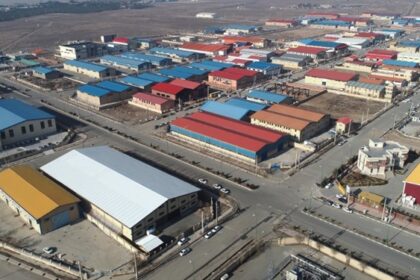RASC News Agency: As Afghanistan’s financial collapse intensifies under Taliban rule and international aid remains indefinitely suspended, a sweeping directive by the group’s reclusive leader, Hibatullah Akhundzada, to significantly reduce personnel across military and civilian sectors has ignited a storm of discontent within the regime’s own ranks. Sources in Kabul reveal that the decision, particularly targeting the Taliban’s security institutions, has triggered acute tensions among commanders and fighters who now face uncertainty and demoralization. In a rare demonstration of internal dissent at the regime’s highest echelon, three of the Taliban’s most influential figures Sirajuddin Haqqani (Minister of Interior), Mohammad Yaqoob Mujahid (Minister of Defense), and Abdul Haq Wasiq (Head of Intelligence) traveled to Kandahar three days ago to meet with Akhundzada. According to insiders familiar with the matter, the senior officials urged the supreme leader to reconsider the decision, warning of the potentially destabilizing consequences of such sweeping layoffs amid mounting internal unrest.
This controversial move to downsize the Taliban’s workforce comes amid a dramatic depletion of financial resources, following the cessation of U.S. aid and the dwindling support from other regional and international actors. The regime has struggled to meet payroll obligations for months, leaving thousands of civil servants and security forces unpaid fueling widespread resentment within the fragile administrative and military structures. Akhundzada’s decree reportedly mandates the dismissal of nearly 20% of the Taliban’s civil and security personnel. The Ministry of Education is poised to suffer the most severe blow, with approximately 90,000 positions marked for elimination. In tandem, restructuring committees have been dispatched to government departments to oversee and implement the cuts, a process already viewed by many within the Taliban as both chaotic and ill-conceived.
A leaked official document reveals that Yaqoob Mujahid has instructed the Ministry of Interior and the Intelligence Directorate to begin the downsizing by purging individuals deemed “undesirable” or those with questionable past affiliations. This attempt at damage control, however, has done little to quell the growing alarm within Taliban ranks, where morale is plummeting amid an atmosphere of economic paralysis and leadership opacity. While Taliban spokespersons have publicly acknowledged the organizational overhaul, they have framed it as a necessary reform aimed at “enhancing efficiency and curbing bureaucracy.” Behind the scenes, however, informed sources indicate that the regime remains deeply divided, and no definitive resolution has yet been reached on whether the personnel reductions will proceed in full.
Analysts warn that if the regime continues along this path of austerity without a coherent recovery strategy, it risks fracturing the already brittle internal cohesion that holds its authoritarian structure together. The potential for deeper schisms particularly within the Taliban’s military apparatus looms large, especially if the financial crisis worsens in the months ahead. With public trust eroding and internal dissent mounting, the Taliban’s grip on power may be entering a new phase of fragility and internal fragmentation.






